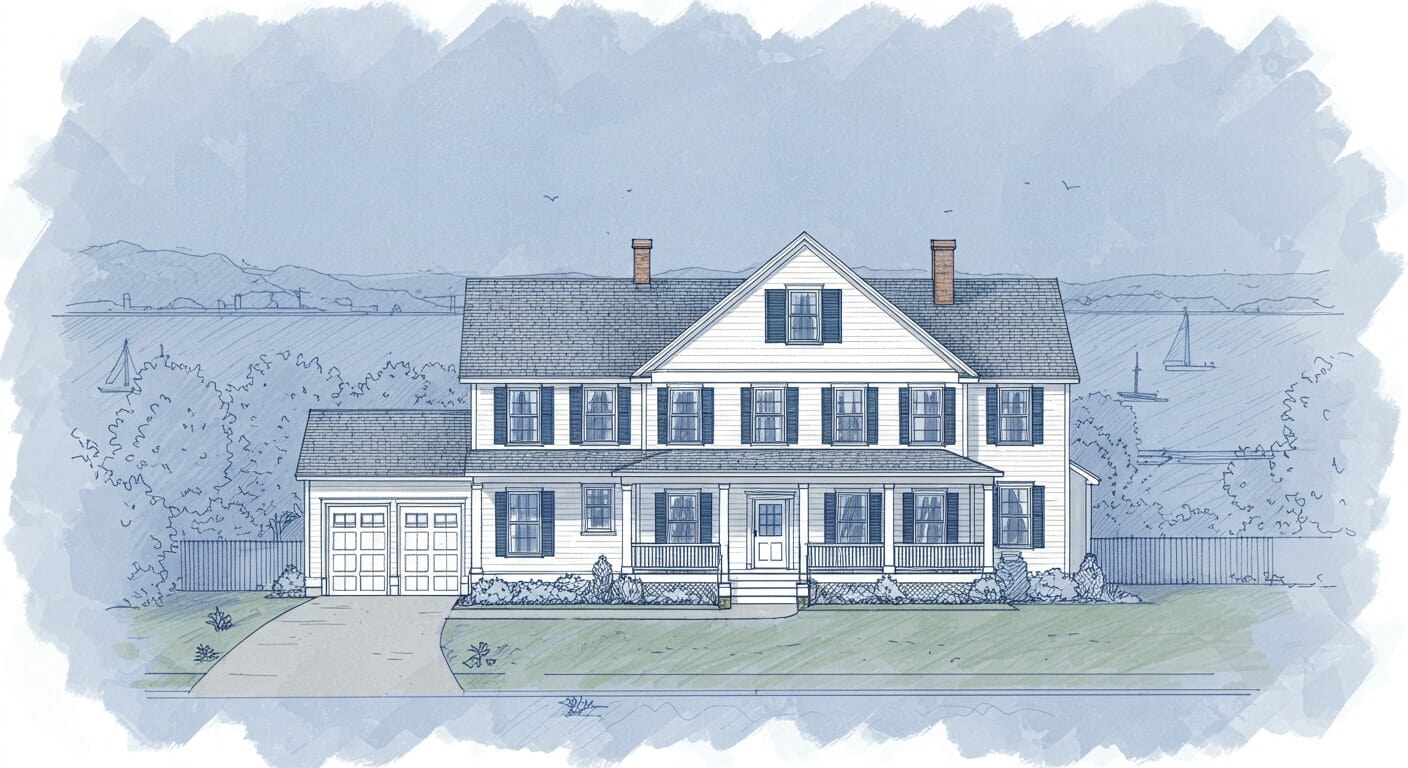Picture this: You’ve found your dream home on Staten Island—a charming colonial with harbor views that checks every box on your wishlist. But when you arrive at the showing, you’re greeted by a parade of other buyers, each armed with pre-approval letters and serious intent. Welcome to today’s competitive real estate market, where bidding wars have become the norm rather than the exception.
In these high-stakes situations, an escalation clause can be your secret weapon. This strategic tool automatically increases your offer to stay competitive without requiring you to guess what other buyers might bid. Think of it as your personal auction assistant, working behind the scenes to help you secure the home you want while protecting you from overpaying.
But how exactly does an escalation clause work, and when should you use one? Let’s dive into everything you need to know about this powerful negotiation tool that could make the difference between getting your keys and watching your dream home slip away.
What Is an Escalation Clause?
An escalation clause is a contractual provision that automatically increases your purchase offer by a predetermined amount if competing offers exceed your initial bid. Rocket Mortgage explains that this clause essentially says, “I’ll pay $X above the highest competing offer, up to a maximum of $Y.”
Every effective escalation clause must include three essential elements:
• Initial offer amount: Your starting bid for the property
• Escalation increment: How much you’re willing to increase above competing offers (typically $1,000 to $5,000)
• Maximum cap: The highest amount you’re willing to pay, no matter what
For example, if you offer $400,000 with a $2,500 escalation increment and a $425,000 cap, your offer would automatically increase to $2,500 above any competing offer, but never exceed $425,000. This mechanism protects you from emotional bidding while ensuring your offer remains competitive.
According to Investopedia’s definition, escalation clauses originated in commercial contracts to handle price fluctuations but have become increasingly popular in residential real estate, especially in hot markets like the NYC metropolitan area.
The beauty of an escalation clause lies in its efficiency. Instead of going back and forth with counteroffers, you’re essentially telling the seller, “I want this house, and I’m willing to compete—within reason.”
Escalation Clause Example: Staten Island Case Study
Let’s examine how an escalation clause might work in practice using a real-world scenario from Staten Island’s competitive market.
Imagine a well-maintained Cape Cod style home in Tottenville listed at $750,000. You submit an offer with these terms:
• Initial offer: $750,000
• Escalation increment: $3,000
• Maximum cap: $780,000
• Proof requirement: Seller must provide competing offer documentation
Now, let’s say two other buyers also submit offers. Buyer A offers $755,000 straight, while Buyer B offers $760,000. With your escalation clause, your offer automatically increases to $763,000 ($3,000 above Buyer B’s $760,000 offer), making you the highest bidder without exceeding your comfort zone.
This approach is particularly effective in Staten Island’s current market, where latest Staten Island listings often receive multiple offers within days of hitting the market. Recent comparable sales in the area show similar properties selling for $770,000 to $785,000, confirming that your $780,000 cap aligns with current market values.
The key advantage here is psychological as much as financial. While other buyers might hesitate to make their highest and best offer upfront, your escalation clause demonstrates serious intent while maintaining your financial boundaries. Sellers often appreciate this approach because it streamlines the negotiation process and provides them with confidence that the deal will close at a competitive price.
Pros and Cons of Using an Escalation Clause
Like any negotiation strategy, escalation clauses come with both advantages and potential drawbacks. Understanding these can help you decide when this tool makes sense for your situation.
Advantages:
• Competitive edge without guesswork: You don’t have to predict what others will offer
• Automatic participation: Your offer stays in the game even if you can’t respond immediately
• Psychological advantage: Shows sellers you’re serious and financially prepared
• Cap protection: Prevents emotional overbidding that exceeds your budget
• Time efficiency: Reduces back-and-forth negotiation rounds
Disadvantages:
• Reveals your maximum: Sellers know exactly how high you’re willing to go
• No guarantee of acceptance: Sellers might prefer other terms or choose a different offer
• Appraisal gap risk: Your escalated offer might exceed the home’s appraised value
• Financing complications: Higher purchase prices may require larger down payments
• Limited negotiation power: Less flexibility for other deal terms once price is set
The appraisal gap risk deserves special attention. If your escalated offer ends up at $780,000 but the home appraises for only $760,000, you’ll need to cover the $20,000 difference with additional cash or renegotiate the contract. This scenario becomes more likely as your escalation pushes the price above recent comparable sales.
Additionally, some sellers might view escalation clauses skeptically, particularly if they’ve had bad experiences with buyers who couldn’t ultimately perform at the escalated price. The North Carolina Real Estate Commission bulletin notes that poorly written clauses can create legal complications, making professional guidance essential.
How to Draft a Winning Escalation Clause
Creating an effective escalation clause requires precise language and careful consideration of market conditions. The key is balancing competitiveness with protection for your interests.
Essential Components:
Start with clear, unambiguous language that specifies your initial offer, escalation amount, and maximum cap. Your clause should state something like: “Buyer’s offer shall be increased by $2,500 above any bona fide competing offer, not to exceed $425,000 total purchase price.”
Proof Requirements:
Always require the seller to provide written documentation of competing offers before your escalation takes effect. This transparency prevents potential manipulation and ensures you’re responding to genuine competition. Specify that you must receive copies of the competing offer’s first page showing the purchase price and terms.
Financing Contingencies:
Maintain your financing contingency even with an escalation clause. Your lender needs to approve the higher purchase price, and you’ll want protection if loan approval becomes impossible at the escalated amount.
Appraisal Considerations:
Address potential appraisal gaps upfront. You might include language stating that if the home doesn’t appraise for the escalated purchase price, you can either renegotiate or walk away without penalty.
Escalation vs. Highest-and-Best
Understanding the difference between escalation clauses and highest-and-best scenarios is crucial for strategic decision-making. In a highest-and-best situation, sellers typically give all buyers one final chance to submit their absolute best offer. This approach puts you in a guessing game where you must decide your maximum offer without knowing the competition.
Escalation clauses, by contrast, let you respond dynamically to actual competing offers rather than guessing. However, some sellers prefer highest-and-best scenarios because they maintain more control over the process and don’t have to disclose competing offer details.
When drafting your escalation clause, consider including a backup highest-and-best provision that allows you to submit a final offer if the seller chooses that route instead.
When an Escalation Clause Makes Sense in Staten Island & NJ Markets
Market conditions significantly influence the effectiveness of escalation clauses. In Staten Island and northern New Jersey, several factors make these clauses particularly valuable.
Current inventory levels remain below historical averages, with many desirable properties receiving multiple offers within 48 hours of listing. This competitive environment makes escalation clauses especially relevant for new-construction opportunities and move-in-ready homes in sought-after neighborhoods.
Price ranges between $500,000 and $900,000 see the most bidding war activity, as this segment attracts both first-time buyers with maximum financing and move-up buyers with significant equity from previous sales. If you’re shopping in this range, an escalation clause can help you compete effectively.
Escalation clauses work best when you’re confident about local market values and have done thorough comparable sales research. Before implementing this strategy, browse all NYC-metro homes for sale to understand pricing trends in your target areas.
Timing also matters. Spring and early summer typically bring the most competition, making escalation clauses more valuable during these peak seasons. However, in today’s market conditions, competitive situations can arise year-round.
Alternatives to Escalation Clauses
While escalation clauses can be effective, they’re not your only option for winning competitive bidding situations. Consider these alternative strategies:
Larger Earnest Money: Increase your earnest money deposit to demonstrate financial commitment and reduce the seller’s risk of deal failure.
Flexible Closing Timeline: Offer to close on the seller’s preferred timeline, whether that’s a quick 15-day closing or a delayed closing to accommodate their moving plans.
Inspection Contingency Modifications: Consider shortening your inspection period or offering to handle minor repairs discovered during inspection.
Personal Letter: While not always appropriate, a heartfelt letter explaining why you love the home can sometimes influence seller decisions.
Cash-Equivalent Offers: If you’re obtaining financing, consider offering to cover appraisal gaps up to a certain amount, making your financed offer more attractive.
Frequently Asked Questions
Does an escalation clause always win? No, escalation clauses don’t guarantee success. Sellers might prefer offers with better terms, fewer contingencies, or faster closing timelines. Some sellers are also wary of escalation clauses if they’ve experienced problems with buyers who couldn’t ultimately perform at the escalated price.
Are escalation clauses legal in New York and New Jersey? Yes, escalation clauses are legal in both states, but they must be properly written and executed. Working with an experienced real estate agent ensures your clause complies with local regulations and standard practices. Understanding New Jersey closing costs is equally important when crafting competitive offers, as total transaction expenses beyond the purchase price affect your maximum escalation limits.
Can sellers reject an escalation clause? Absolutely. Sellers have no obligation to accept any offer, including those with escalation clauses. They might prefer the certainty of a straight offer or better terms from other buyers.
How do you write an escalation clause? Escalation clauses require specific legal language to be enforceable. Essential elements include your initial offer, escalation increment, maximum cap, and requirements for proof of competing offers. Always work with a qualified real estate professional to draft these clauses properly.
What’s the difference between an escalation clause and an appraisal gap? An escalation clause automatically increases your offer based on competition, while an appraisal gap clause addresses what happens if the home doesn’t appraise for the purchase price. You might need both protections in a competitive market.
Ready to Win Your Next Bidding War?
Escalation clauses represent just one tool in the modern home buyer’s toolkit, but when used strategically, they can make the difference between success and disappointment in competitive markets. The key is understanding when to use them, how to structure them properly, and what alternatives might work better for your specific situation.
Whether you’re considering an escalation clause or exploring other competitive strategies, having an experienced local agent makes all the difference. Our team understands the nuances of Staten Island and northern New Jersey markets, from pricing strategies to neighborhood dynamics that influence seller decisions.
Ready to craft a winning offer strategy? Explore the buyer experience at Robert DeFalco Realty to learn how our market expertise and negotiation skills can help you secure your dream home. Contact us today to discuss your home buying goals and develop a personalized approach that gets results in today’s competitive market.

